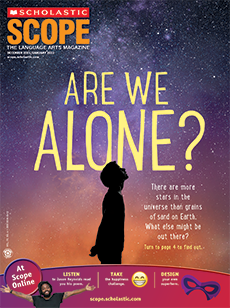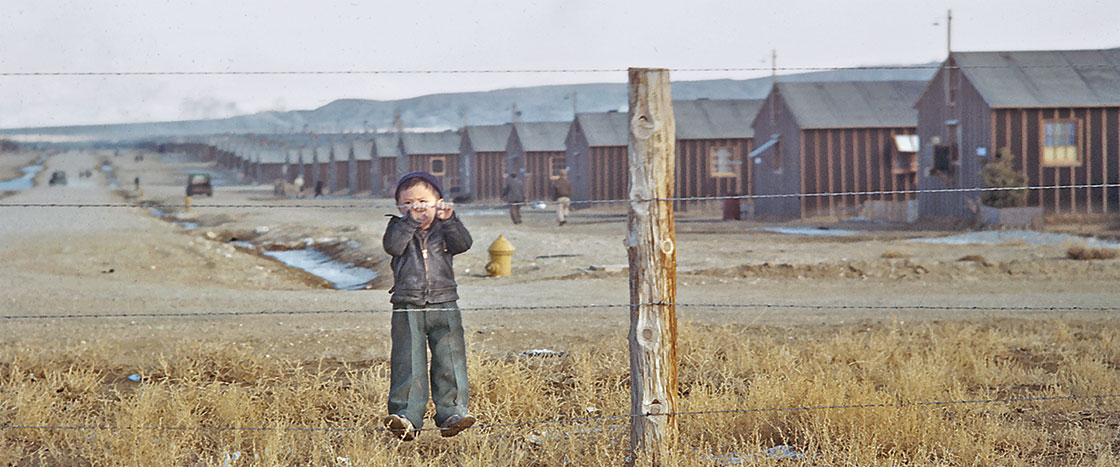- Read “Betrayed By America” as a class.
- Then have students work in groups to discuss the following.
Close-Reading Questions
According to the article, why did Japan bomb Pearl Harbor in 1941? (key ideas) Japan was trying to cripple the U.S. Navy so that it couldn’t stop Japanese expansion.
On page 6, Kristin Lewis writes that the bombing of Pearl Harbor changed American history and Bill’s life. In what ways did the bombing change American history and Bill’s life? (key ideas; cause and effect) The attack set off a sequence of events that would have a profound effect on the whole country and on Bill and other Japanese Americans in particular. The attack caused the U.S. to enter World War II and sparked increased prejudice against people of Japanese descent, which led to the internment of Japanese Americans. Bill and his family were imprisoned for three years, which severely disrupted their lives.
On page 7, Lewis explains that Executive Order 9066 allowed Japanese Americans on the West Coast to be sent to relocation camps. “History,” Lewis then writes, “would come to regard this order as one of America’s most shameful acts.” What information does Lewis provide to explain why the order would come to be seen that way? (analyzing the development of an idea) The order was issued because of fear and panic, not because of any actual threat. (In fact, a military report said that less than 3 percent of Japanese Americans were likely to pose any threat—and those individuals were already known to law enforcement.) What’s more, the mass incarceration of an entire group of people goes against America’s principles of equality and justice. Then there were the difficult conditions in the internment camps—the lack of medical supplies and privacy. And detainees had their entire lives disrupted—they had to give up their homes, businesses, friends, etc.
On page 8, Lewis describes Bill looking at a movie theater that “might as well have been on the moon.” What does she mean? (figurative language) Lewis means that it would have been as impossible for Bill to go across the street to that theater as it would have been for him to go to the moon. She is emphasizing that Bill was being kept like a prisoner.
Read “Children of Camp" (15 minutes)
- Play the audio of the poem on page 9 while students follow along in their printed issues. Invite students to share their thoughts about the poem’s meaning or effect. To go deeper, break students into groups to complete the Analyze the Poem activity.
- Come together as a class to discuss the following questions, which draw on the poem and the article.
Critical-Thinking Questions (5 minutes)
Lewis writes that when Japanese Americans were finally set free from the internment camps, “their sense of safety and justice had been shattered.” Why might this have happened? The people sent to internment camps were taken from their homes and imprisoned for years despite having done nothing wrong. They would have had no reason to trust the government again.
At the end of the article, Bill says he feels that everyone should know what happened to Japanese Americans in the 1940s “so it never happens again.” How could knowing what happened prevent something similar from happening again? What else do we need to do to make sure it never happens again? Learning about this event shows us what can happen if we are not careful, and can put us on alert if something similar starts to happen now. We can look back and see the mistakes we made, which should help stop us from making the same mistakes again. Other things we must do include: speaking out against prejudice and discrimination; making an effort to get to know people who seem different from us; protesting discriminatory practices, rules, and laws; and not believing everything we hear or read.
In the poem, the poet writes that people “made poetry from camp.” What does he mean? How does this idea compare with what Kristin Lewis writes about life in the camps? The poet means that during internment, people maintained their honor and dignity, and that there was a beauty in the way they preserved their humanity. In her article, Lewis includes a similar idea when she describes how detainees decorated their barracks, held social events, and worked hard to make the best of a horrifying situation. In other words, people made something beautiful and human in the face of ugly, dehumanizing conditions.


